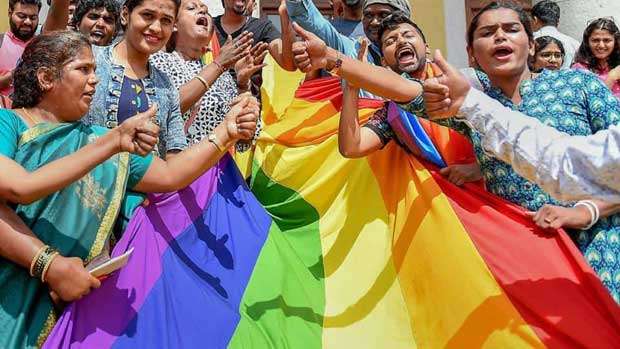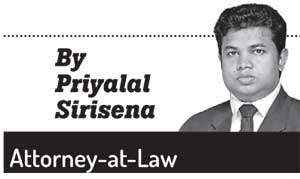Reply To:
Name - Reply Comment
Last Updated : 2024-05-07 20:29:00


With a revolutionary judgement, the Indian Supreme Court last month abolished laws that criminalized sexual activities between individuals of same-sex. The panel of judges headed by Chief Justice Dipak Misra held that criminalization of same sex relationships by Section 377 of Indian Penal Code was contrary to the Constitution of India, and that it violated fundamental rights of individuals especially the Articles 15 of Constitution which guarantees explanation that no discrimination should be done against any citizen on grounds of religion, race, caste, sex or place of birth. Arguments of public morality and public decency came up as usual, yet the court did not hesitate to strike down this archaic colonial time legal provision which was in force for a period of about 158 years in India. The court also declared that Section 377 of Indian penal code was unconstitutional “in so far as it criminalizes consensual sexual conduct between adults of the same sex”. This landmark judgment has given a ray of hope for the LGBT community in Sri Lanka as well. However, if we could follow the same legal path is still a question due to legal and social barriers. First obstacle is the cultural attitudes which are heavily influenced by Victorian era norms (which have no relevancy to Sri Lankan traditions). The other barrier is the legal limitations. This article is mostly focussing on the latter.
The Sri Lankan Penal Code contains provisions similar to Indian Penal Code, which criminalizes sexual activities between individuals of same-sex. The history and origins of Section 365 of Sri Lankan Penal code runs back to 16th Century, when the Buggery Act was imposed in England to prohibit ‘unnatural sexual acts against the will of God’. This law further prescribed death penalty on such offenders. Following the Wolfenden report, the UK Parliament finally abolished this law in 1967, while former colonies such as India, Sri Lanka and commonwealth Caribbean continued to keep these legal provisions in their penal law, remnants of outdated British legal codes.
Legal provisions which are often used against affairs of LGBT community often relates to decency. This implies that majority heterosexual affairs are naturally ‘decent’ while same-sex relationships are often regarded as ‘indecent’. In a context where the police tend to arrest even heterosexual couples at parks for indecency, it is not a surprise that they have a higher tendency to use indecency argument against LGBT relationships.
Section 365A of our Penal Code, which is also used as a legal tool against same-sex relationships, stipulates that ‘any person who, in public or private, commits any act of gross indecency with another person, shall be guilty of an offence’. This section makes it illegal to commit ‘act of indecency’ even in private. What is considered decent and what is indecent (in private context) appears to be highly subjective. It is a question how a heterosexual activity between two consenting individuals in private sphere becomes decent, while a sexual activity between consenting adults of same-sex in private sphere becomes indecent.
Wording of Section 365 of the Sri Lankan Penal Code (and that of Section 377 of the Indian Penal Code) contains the ambiguous term “carnal intercourse against the order of nature” which is the vague benchmark used to differentiate and condemn sexual activities of LGBT community. This term appears to normalize heterosexual behaviour of the majority while affairs and activities of the sexual minorities are automatically treated as “against the order of nature”. This gives rise to a fundamental question regarding the nature of human sexuality. Is it merely a biological arrangement? Should it necessarily be heterosexual? The same line of thinking entails whether sexual orientation, which is beyond the control of an individual, could be made the basis of a criminal offence. Present understanding of human sexuality is that it is a social construction, though the topic is open to debate. Even if we argue that human sexuality is biologically determined, it is clear that sexual orientation is beyond control of the relevant individual.
"Both Constitutions in Sri Lanka and India impose limitations on rights of citizens on concerns of morality. But Sri Lankan constitution and Indian Constitution have a few key difference as well"
Article 12 of our constitution clearly states that no person should be discriminated on the grounds of sex, and the same Article guarantees equal protection before the law. Could a citizen be discriminated, or treated in a different manner before the law due to sexual orientation? Apparently this is what Section 365 does. However the Fundamental Rights provisions in our constitution are subject to limits imposed by Article 15 of the Constitution which stipulates that equality provisions shall be subject to restrictions in the interest of morality, among other restrictions. This has become fatal to any claim by persons with deviant sex identities, of equality before the law. Hence, there is a conflict between claims of protection from discrimination and morality. This explains us that if same sex relationships are against morality, claims of equality before the law cannot be maintained. Therefore, a judicial battle for the fundamental right of equality before the law and for decriminalizing same-sex relationships is bound to fail within the constitution itself.
Morality was a major argument put forward against abolition of Section 377 in India. While a crucial petition claiming to abolish Section 377 being heard before the High Court of Delhi in 2008, Additional Solicitor General P.P. Malhotra commented stating that homosexuality would lead to a big health hazard and degrade moral values of society. This represents the popular Victorian sense of morality which normalizes heterosexual affairs while depicting homosexuality as an evil degeneration.
Both Constitutions in Sri Lanka and India impose limitations on rights of citizens on concerns of morality. But Sri Lankan constitution and Indian Constitution have a few key difference as well. One is the power of judicial review of laws. Indian Supreme Court has certain powers for judicial review of legislation; hence it has the power to demolish any law or any part thereof which is found to be conflicting with Constitutional provisions. This was the major advantage the LGBT community had, in appeals to review the laws criminalizing same-sex relationships. Article 13 of Indian Constitution states that laws which are inconsistent with the fundamental rights are void. Hence, all which was legally required was to show that penal law in India was violating the constitutional rights of individuals. However, on the other hand, Article 16 of Sri Lankan Constitution expressly states that all existing written law and unwritten laws shall be valid, notwithstanding any inconsistency with the fundamental rights chapter of the Constitution. This constitutional provision presents a legal challenge totally different from the experience of Indian legal activists.
Sri Lankan Supreme Court has a limited window of judicial review of draft laws only at the Bill stage. Once a law is passed and approved in the Parliament, such law cannot be challenged later for its inconsistency with the Constitution. This creates the second obstacle in any legal battle for abolition of Section 365 of the Penal Code, as it is expected to be in force even if it is found inconsistent with our Constitution. In Sri Lanka, the Supreme Court is not the forum for statutory changes, and it is up to the Parliament to amend the law, through a new legislative process.
Limitation of rights imposed on grounds of morality, and lack of powers for judicial review of laws in Sri Lanka make it unlikely that a judicial process could be used to abolish Section 356 of Penal Code, as happened in India. Sri Lankan courts are technically incapable of abolishing or changing an existing law which has already been passed by the legislature. Such changes of laws should originate from the Parliament itself. Any proposal for a change of law requires majority vote of members of Parliament, who often succumbs to views of voters who believe in popular conceptions of morality. In short, effective legislative process to amend the law is highly unlikely, while judicial process may face unavoidable constitutional limitations. Does this mean a dead end for LGBT rights?
"Article 12 of our constitution clearly states that no person should be discriminated on the grounds of sex, and the same Article guarantees equal protection before the law"
The writer has an alternative opinion on this issue. Although it appears that having a judicial relief is almost impossible due to constitutional limitations on courts in demolishing an existing law, our judiciary is entrusted with the role of interpretation of laws, and the Supreme Court holds the exclusive power to interpret the Constitution. The Constitutional limitation imposed by Article 15 on concerns of‘morality’ has to be interpreted in a progressive way, to avoid influence of popular misbelief on LGBT community. Court may also re-define the meanings of vague terms in legal codes such as ‘indecency’ ‘immorality’ and ‘intercourse against the order of nature’. Unless the Section 365 is not repealed by a legislative intervention, this interpretative remedy could substantially solve the issues faced by the LGBT community, by getting their affairs not falling within the ambit of Section 365.
A supportive view could be seen in the 2009Delhi High Court Judgment Naz Foundation v. Govt. of NCT of Delhi, in which case rights of LGBT community were first upheld. In the judgement the Delhi High Court pointed out that “popular morality or public disapproval of certain acts is not a valid justification for restriction of the fundamental rights … Popular morality, as distinct from a constitutional morality derived from constitutional values, is based on shifting and subjecting notions of right and wrong.” This argument was developed from the views of none other than Dr. B.R. Ambedkar who headed drafting of Indian Constitution. The same principles could be applied by our Supreme Court in defining ‘morality’ in line with the principles of equality embedded in the Constitution and especially in the fundamental rights chapter, to uphold rights of LGBT community.
Author Priyalal Sirisena is an Attorney-at-Law of the SC and he is engaged in legal and advocacy activities in the field of Human Rights.
Sunil Wickramasena Monday, 22 October 2018 03:37 PM
Wonderful ...Wonderful...Can't wait to see grandma's expression LOL ...!!

Add comment
Comments will be edited (grammar, spelling and slang) and authorized at the discretion of Daily Mirror online. The website also has the right not to publish selected comments.
Reply To:
Name - Reply Comment
US authorities are currently reviewing the manifest of every cargo aboard MV
On March 26, a couple arriving from Thailand was arrested with 88 live animal
According to villagers from Naula-Moragolla out of 105 families 80 can afford
Is the situation in Sri Lanka so grim that locals harbour hope that they coul